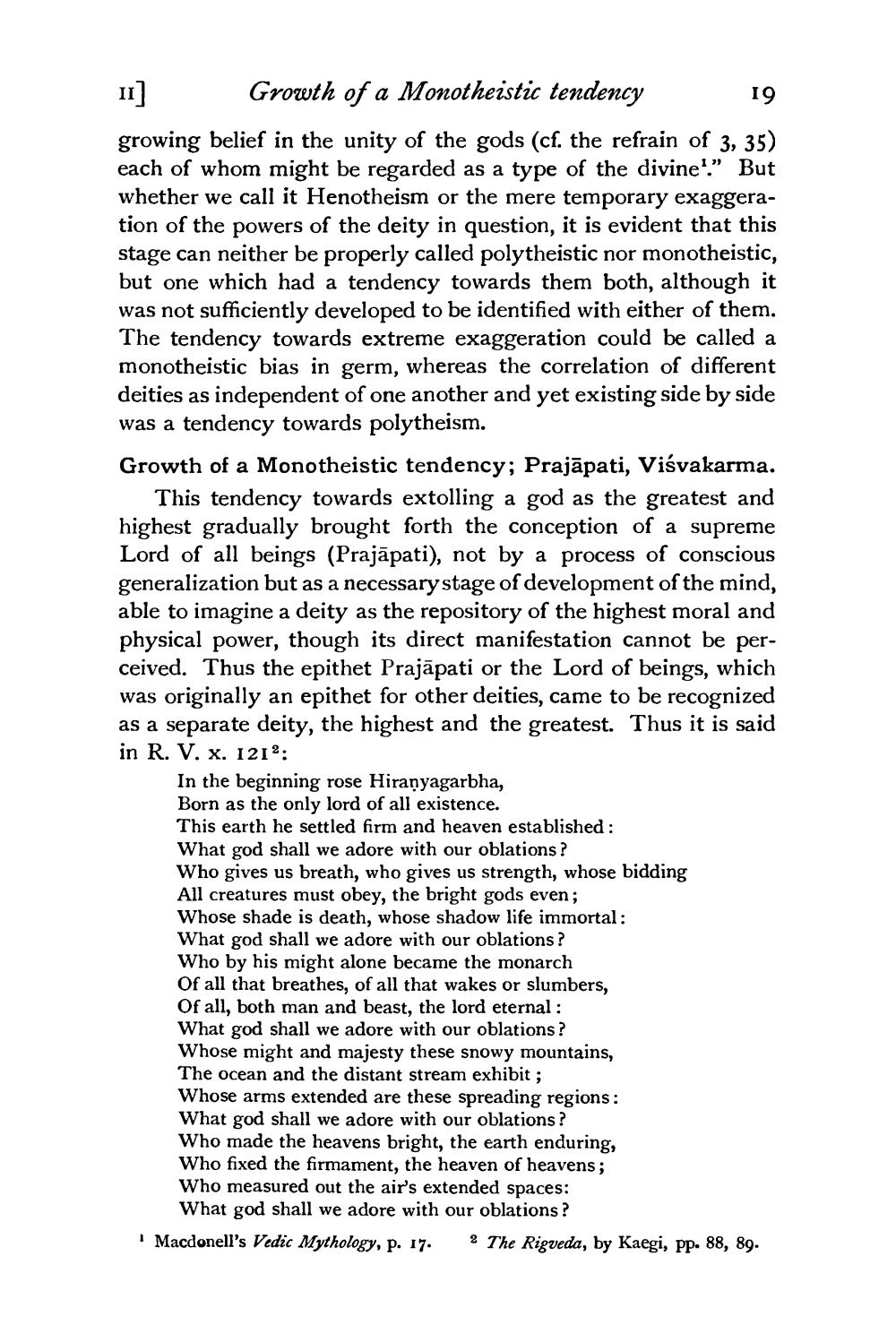________________
11]
Growth of a Monotheistic tendency
19
growing belief in the unity of the gods (cf. the refrain of 3, 35) each of whom might be regarded as a type of the divine"." But whether we call it Henotheism or the mere temporary exaggeration of the powers of the deity in question, it is evident that this stage can neither be properly called polytheistic nor monotheistic, but one which had a tendency towards them both, although it was not sufficiently developed to be identified with either of them.
The tendency towards extreme exaggeration could be called a monotheistic bias in germ, whereas the correlation of different deities as independent of one another and yet existing side by side was a tendency towards polytheism. Growth of a Monotheistic tendency; Prajāpati, Viśvakarma.
This tendency towards extolling a god as the greatest and highest gradually brought forth the conception of a supreme Lord of all beings (Prajāpati), not by a process of conscious generalization but as a necessary stage of development of the mind, able to imagine a deity as the repository of the highest moral and physical power, though its direct manifestation cannot be perceived. Thus the epithet Prajāpati or the Lord of beings, which was originally an epithet for other deities, came to be recognized as a separate deity, the highest and the greatest. Thus it is said in R. V. x. 1212:
In the beginning rose Hiranyagarbha, Born as the only lord of all existence. This earth he settled firm and heaven established : What god shall we adore with our oblations? Who gives us breath, who gives us strength, whose bidding All creatures must obey, the bright gods even; Whose shade is death, whose shadow life immortal: What god shall we adore with our oblations? Who by his might alone became the monarch Of all that breathes, of all that wakes or slumbers, Of all, both man and beast, the lord eternal : What god shall we adore with our oblations? Whose might and majesty these snowy mountains, The ocean and the distant stream exhibit ; Whose arms extended are these spreading regions: What god shall we adore with our oblations? Who made the heavens bright, the earth enduring, Who fixed the firmament, the heaven of heavens; Who measured out the air's extended spaces:
What god shall we adore with our oblations? Macdonell's Vedic Mythology, p. 17. 2 The Rigveda, by Kaegi, pp. 88, 89.




